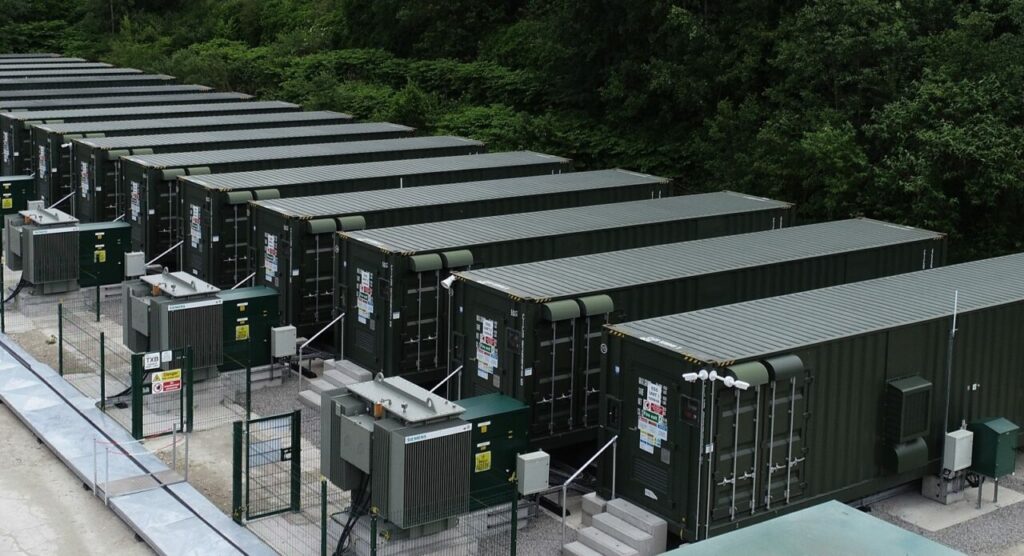
A report published by trade association RenewableUK today (2 May) has shown that the total pipeline of battery projects has reached 95.6GW, a two-thirds increase on last year.
The 67.4% (38.5GW) increase from 57.1GW is the second consecutive 12-month period in which the pipeline has increased by this percentage. The total includes battery projects that are operational, under construction, consented to, or being planned.
RenewableUK’s director of future electricity systems, Barnaby Wharton, said: “It’s great to see that, for the second year running, the UK’s battery storage pipeline has grown by two-thirds within the space of twelve months. The appetite among investors to enter this rapidly-growing market remains enormous.”
Operational battery storage capacity has risen to 4.4GW and the capacity of projects under construction has reached 4.3GW. The average capacity of projects being submitted for planning permission has risen by 53MW or 196% – from 27MW in 2019 to 80MW now.
The chart below shows the total UK battery project portfolio in megawatts.

Battery storage is critical to the security and flexibility that will make the future energy system resilient and reliable. Its effective use will also provide energy system cost savings and benefits by enabling energy produced at times of high generation to be stored and used during peak times.
Wharton added: “Batteries have a key role to play in ensuring that electricity supply always meets demand. While there has been significant uptake in projects, we are far from delivering the 55GW of short-term flexibility by 2035 that the government says we need in its Review of Electricity Market Arrangements.
“We have the potential to move much faster by speeding up the process of consenting and connecting vital energy storage projects to the grid.”
Battery storage installations on the rise
In April, SSE Renewables launched its first operative battery energy storage system (BESS) with a capacity of 50MW/100MWh.
A recent Solar Power Portal blog discussed how the UK exceeded 1GW of installed energy storage capacity, the factors behind the drive now from 1GW to 10GW, and the annual deployment that can be expected in the next few years as a result.
According to statistics from the Microgeneration Certification Scheme (MCS), battery storage installations rose by 707% year-on-year in March 2024, exceeding 1,000 installations for just the second month in the scheme’s history.
Another report released recently by RenewableUK showed that building energy storage projects next to wind farms reduces electricity system costs and boosts energy security.
The report sets out a case for reforming the planning system and introducing financial support mechanisms to encourage co-location at sites where clean electricity is generated across the UK.
Wharton said: “By improving the planning system and introducing reforms to financial support mechanisms to encourage more battery projects to co-locate at sites where clean electricity is generated, we can reduce the cost of building and running batteries significantly”.

